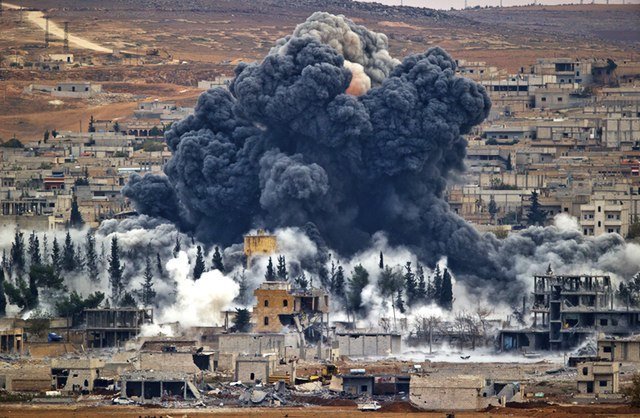
Donald Trump and the philosophy of ‘making things worse’
HAVANA – “The worst of times often create the best opportunities to make good deals,” wrote Donald Trump in his first book, “The Art of the Deal,” written in 1987.
A whole theory of American political science is based on the application of this practice. It is called “disaster capitalism” and is based on the criterion of taking advantage of, or provoking, tragic situations in order to facilitate the most advantageous conditions for the deal. Some consider it a necessity for the full implementation of neoliberalism, and large American corporations act under the principle of “destruction-reconstruction,” with a view of maximizing their profits.
In Cuba it is defined as “making things worse” and apparently it is the philosophy that inspires the actions of President Donald Trump. Getting out of the Paris agreements on the environment; dynamiting atomic agreements with Iran; threatening nuclear attacks on North Korea; invading Venezuela; militarizing the border to persecute migrants; imposing economic sanctions on half the world; and starting a trade war with China are some examples that show it. Even U.S. allies have become targets of this negotiating strategy.
In particular, the case of China illustrates a situation that may have repercussions on a global scale. On the one hand, it responds to a very primitive criterion of commercial competition that through political pressure hopes to solve what economic efficiency can not by itself. But, on the other, it transcends the economic, to reflect a vision of global domination that feels threatened. This is expressed in the latest National Security Strategy of the United States, where China is defined as an enemy “that seeks to challenge American power, influence and interests.” In both cases, it reflects more than the strength that Donald Trump tries to portray with his attitude, and reflects the deterioration of U.S. hegemony in various scenarios.
The problem: one thing is to want and the other is to be able to. Although the North American market is really important to China, for the United States the Chinese market is no less important. Considered the largest potential market in the world, China is one of the main trading partners of the United States, and its most important creditor. Many North American agricultural products find in China their best export destination and the Chinese products are vital in the production chains and supply of the great American manufacturing companies.
By imposing levies on Chinese products, Donald Trump is affecting the economic recovery he inherited from the Obama administration. Although it is currently favorable incased on its macroeconomic indicators, this recovery is described as slow, vulnerable and structurally inorganic. It is expressed in the increase in inequalities, the quality of available jobs and the relative deterioration of the standard of living of most of the population, including the so-called middle class — the social foundation of the system.
From this perspective, it does not seem good policy to try to boost the nation’s industry on the basis of protectionist measures that, even if they are effective, would have the inevitable result of increasing the cost of living of Americans and the functioning of the country’s economy itself, whose scale transcends national borders.
The problem is aggravated when the Chinese response, based on the enormous progress of the country and the emergence of a leadership more committed to its role in the world, has decided to accept the challenge and impose similar taxes on a group of North American products, decreasing, still more, the competitive capacity of U.S. exports.
Apparently, American government leaders know little about China. This country’s special psyche is well prepared to face economic tensions, but the Chinese seem very aware of what is happening in the United States and have taken special care to affect, firstly, products coming from the agricultural sector, for which the Chinese market is fundamental, and where a large part of the Republican electoral potential is concentrated. This has generated concerns within the ranks of that party, especially the congressmen from agricultural states that have to face midterm elections in November, which weakens Trump’s position, perhaps beyond what his administration can resist.
According to Trump himself, opposing the increase in fees cost Gary Cohn the position of economic advisor, but the Treasure and Commerce secretaries, Steve Mnuchin and Wilber Ross respectively, both who come from big corporate interests, have also expressed reservations about this policy and tried to diminish its repercussions. As has often happened, such differences increase the bewilderment over official policy, and even spokespersons from the White House have tried to qualify the president’s tweets.
Trump, however, showing a confusing stubbornness, has declared that “trade wars are good and easy to win,” and has insisted that his plan of a trade war with China expresses his will and not a negotiating maneuver. He has also announced that he will counterattack the Chinese response with an increase of tariffs on other products. In turn the Chinese responded that they do not want such a commercial war, but are willing to face it to the ultimate consequences.
Encouraging confrontation shows the worst characteristics of the administration. They represent the most unbridled tendencies of the global conflict, and are representative of the most extreme formulas of disaster capitalism, who have gained a greater influence in the administration. Trump is comfortable with these people because they encourage that ‘neighborhood bully bravado’ and appear unconditionally to back his most outlandish decisions. But behind their supposed idolatry, that so delights the president’s egomaniacal tendencies, hides an ideology that assumes that force of fear should guide American policy.
This logic explains the President’s debauchery in recent weeks, but “making things worse” can be a very dangerous adventure, since, in the long run, the worst is not good for anyone. So much so, that a person like Madeleine Albright, who once sat chair among the system’s hawks, today wonders if there is time to stop Donald Trump before it is too late.

